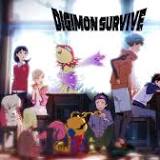Richard Osman opens up about lifelong ‘difficult journey’ with food addiction


Richard Osman has spoken candidly of living with food addiction which he said will be with him “for the rest” of his life.
The Pointless star and author, 51, said his food issues started when he was a child and he had therapy in his 30s to try and address them.
“There hasn’t been a day of my life since the age of nine where I haven’t thought about problems with food and how it affects me,” he told BBC Radio 4’s Desert Island Discs.
“And it will be with me for the rest of my life, I know that. I’m either controlling it or not controlling it at any given time, and these days I control it more often than I don’t.
“But…because you have to eat, it’s actually quite hard and sometimes you do slip but I try my best and I certainly have no shame about it now and anyone at home who overeats or, and thinks it’s ridiculous, you’ve just got to divorce that.”
Food addiction, he said, does not have the “doomed glamour” of drugs or alcohol addictions. He added: “If I came to your house and there were crisps or chocolate bars untouched in the fridge, I’d be like ‘What? How are they untouched?’ – if I’m going through an episode.”
“And food is a tricky one, because booze and drugs you can just give up. [It is] unbelievably difficult but [with] a zero-tolerance policy.
“Whereas if you’re addicted to food or to love or all these things that are sustaining, you do still have to have them, and so it’s quite a hard one to work your way out of.”
The addiction, he added, “is identical” to that experienced by people with alcohol and drug addictions, noting the “secrecy of consuming these things, the shame behind it”.
Reflecting on his childhood, Osman said the shock of his father leaving the family home when he was nine meant he “shut himself down” in response.
He also recalled aparticularly difficult period in his life when he was left feeling “directionless”, despite having a successful career having created the reality show Survivor, and writing for shows Have I Got News for You and Whose Line Is It Anyway? at the time.
He sought professional help for his problems, including those connected with food.
“I think it is that thing of, my career was going well and I was successful, and I had kids, so I had all the things that I thought were the thing that I needed or the thing that was going to make everything okay, and none of them did,” he said.
“And getting older and older and just working out that I was slightly directionless, and I had various addictive behaviours as well.
“As soon as you have an addictive behaviour you know that something’s up because you know you’re hiding something or controlling something.
“My addictive behaviour has always been food, it has been since I was incredibly young.”
However, Osman whose debut novel The Thursday Murder Club saw him named author of the year at the 2021 British Book Awards, told the programme he is “now in a place where I want to be”.
He also encouraged listeners on Boxing Day who may “over-eat” to try and tackle the issue.
“Listen, we all have something that gets us through life and you know if that’s yours, then we have to face it head-on,” he said.
“It’s just not being so afraid of life and afraid of what will happen if you put yourself out there. That’s a difficult journey and it doesn’t come naturally to me, but the more I try it, the happier I get.”
Tom Quinn, director of external affairs for eating disorder charity Beat, told the BBC it was “grateful” to Osman for speaking openly about his food addiction.
“Sadly there is still stigma surrounding men who experience disordered eating, which can make it more difficult for men to recognise symptoms in themselves and reach out for help,” he said.
“Whenever people in the public eye share their experiences with disordered eating, it helps to reduce the misconception that disordered eating only affects women, and can encourage more people to reach out for support.”
The charity estimates there are around 300,000 males in the UK with an eating disorder, adding it had seen a “huge increase” in people contacting them for support.
For advice, information and support for people affected by eating disorders beateatingdisorders.org.uk


 United Kingdom
United Kingdom Argentina
Argentina  Australia
Australia  Austria
Austria  Brazil
Brazil  Canada
Canada  Germany
Germany  Ireland
Ireland  Italy
Italy  Malaysia
Malaysia  Mexico
Mexico  New Zealand
New Zealand  Poland
Poland  South Africa
South Africa  United States
United States 





























